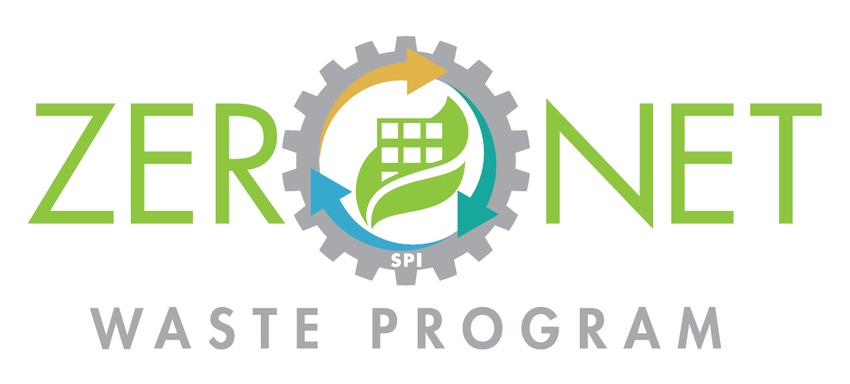SPI launches new Zero Net Waste program
SPI: The Plastics Industry Trade Association (Washington, DC) has launched a new tool designed to provide plastics companies with a concrete set of resources that can be used to pursue, and achieve, zero net waste in their facilities and offices. Called the Zero Net Waste (ZNW) program, it is targeted at post-industrial and post-commercial waste with the aim to enable its members to evaluate waste reduction opportunities and maximize landfill diversion.
February 11, 2016

 Kim Holmes, SPI’s Senior Director of Recycling and Diversion, told PlasticsToday that part of the reason for establishing the ZNW program was the finding that companies in the plastics industry today identified maximum landfill diversion in manufacturing as a priority—but that there was a huge variation in how companies were working towards their goal.
Kim Holmes, SPI’s Senior Director of Recycling and Diversion, told PlasticsToday that part of the reason for establishing the ZNW program was the finding that companies in the plastics industry today identified maximum landfill diversion in manufacturing as a priority—but that there was a huge variation in how companies were working towards their goal.
“We decided to help,” she said. “We had members who were all along the spectrum: some had achieved zero waste, some were well on the way and others were just starting out. What we found is that not many have pursued third-party certification yet, so we wanted to build a program that created an incentive of recognition that would help them build the business case for taking that formal certification step.”
The new ZNW program was therefore set up in order to create “a mechanism to recognize achievement,” as Holmes expressed it. “As a way to show why pursuing zero waste and third-party certification makes sense.”
The initiative itself is not a certification program, although companies must meet the requirements of a two-step qualification and verification process—“you have to show us you have a program in place”—before they can be recognized for their efforts. “Recognition is key,” said Holmes. “It takes a lot of organizational commitment to achieve these goals, and it’s a long journey, and people need to be rewarded for taking that journey.”
The cornerstone of the ZNW program is the manual, which includes real-world, step-by-step tools and resources for companies throughout the plastics value chain to ensure that plastic materials and other manufacturing byproducts are put to their highest and best use. From building the business case for pursuing zero net waste, to educating employees and offering practical guidance on finding the right service providers, the ZNW program manual is designed to enable companies of all sizes to take immediate steps to begin pursuing zero waste in their facilities.
“And zero waste is now a priority. Companies are feeling pressure from customers—brand owners—to take those steps,” said Holmes.
She added: “Many of our members have recovery goals, but they all frame them differently. Some are very holistic in their approach. Others have specific recovery target numbers. This program helps to provide a structure for these efforts.”
She pointed out that landfill diversion can provide both environmental and economic benefits, with garbage becoming an actual revenue generator, in some cases.
“We’re hoping that this program can be a tool for companies to achieve their goal. Companies are starting to apply, and we’ve got some just coming into the qualification stage,” Holmes noted.
“But what we also want is to shift the thinking about plastics, to change the broader view people have of this material. This program underscores the fact that plastic is a resource, and that it has value—much, too, much to throw away,” she concluded.
About the Author(s)
You May Also Like


